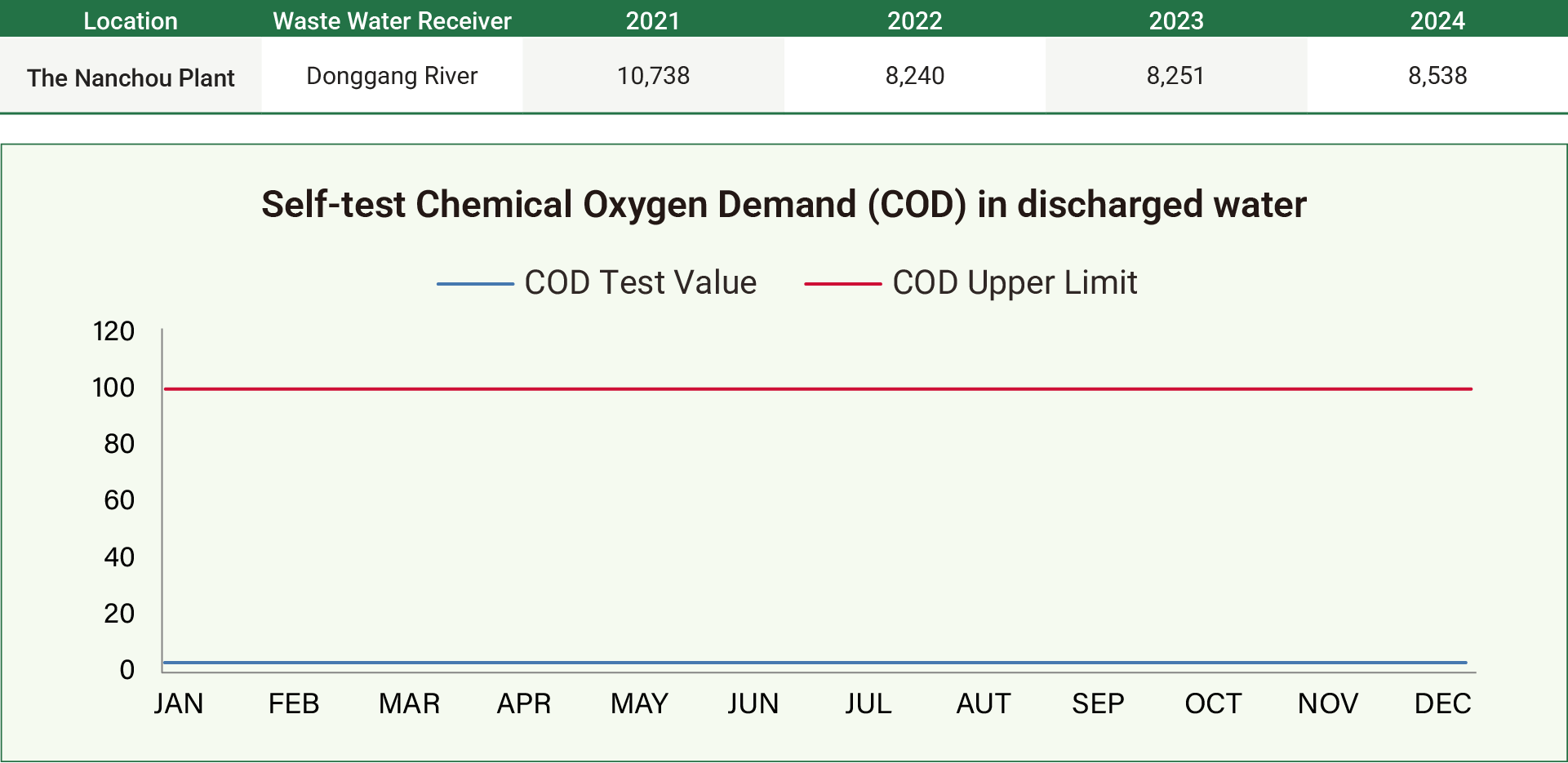Water is an essential resource in the pharmaceutical process of Oneness Biotech. Water plays a key role in the cultivation of botanical raw materials, active pharmaceutical ingredients (APIs), and the preparation of medicines and medical supplements. As a pharmaceutical company committed to sustainable development, we have completed the assessment and mitigation of the risks associated with water quality deterioration, scarcity, and water use and wastewater management.


Note: The subsidiary, Cotton Field Organic Farm, sources its water from groundwater, and the water usage cannot be quantified.
In order to mitigate the potential environmental impact of the operations, the wastewater treatment of Oneness Biotech complies with the requirements of environmental laws and regulations. The scope of wastewater volume surveys includes the parent company and subsidiaries. However, wastewater from the Xinyi and Nangang locations is discharged into municipal sewages for treatment, while Cotton Field Organic Farm’s wastewater is discharged into local channels, making it impossible to quantify. By monitoring water consumption and responsibly disposing wastewater, we not only mitigate our environmental impact but also contribute to the long-term resilience and equity of water rights in the region
We continue to improve the effectiveness of wastewater treatment, control discharge water quality to comply with legal regulations, and regularly monitor the COD value of raw water to make timely adjustments to treatment conditions (e.g. treatment volume, treatment time, pH value of wastewater) based on changes in COD value. Moreover, we use long-term domestication to strengthen the anaerobic bacterial in order to achieve the anaerobic bacterial phase that can tolerate a high ammonia nitrogen environment and increase the COD treatment capacity of raw water.

※The above content is taken from the ESG Report